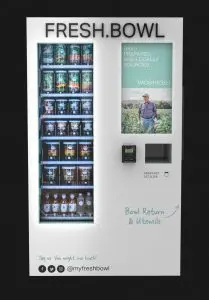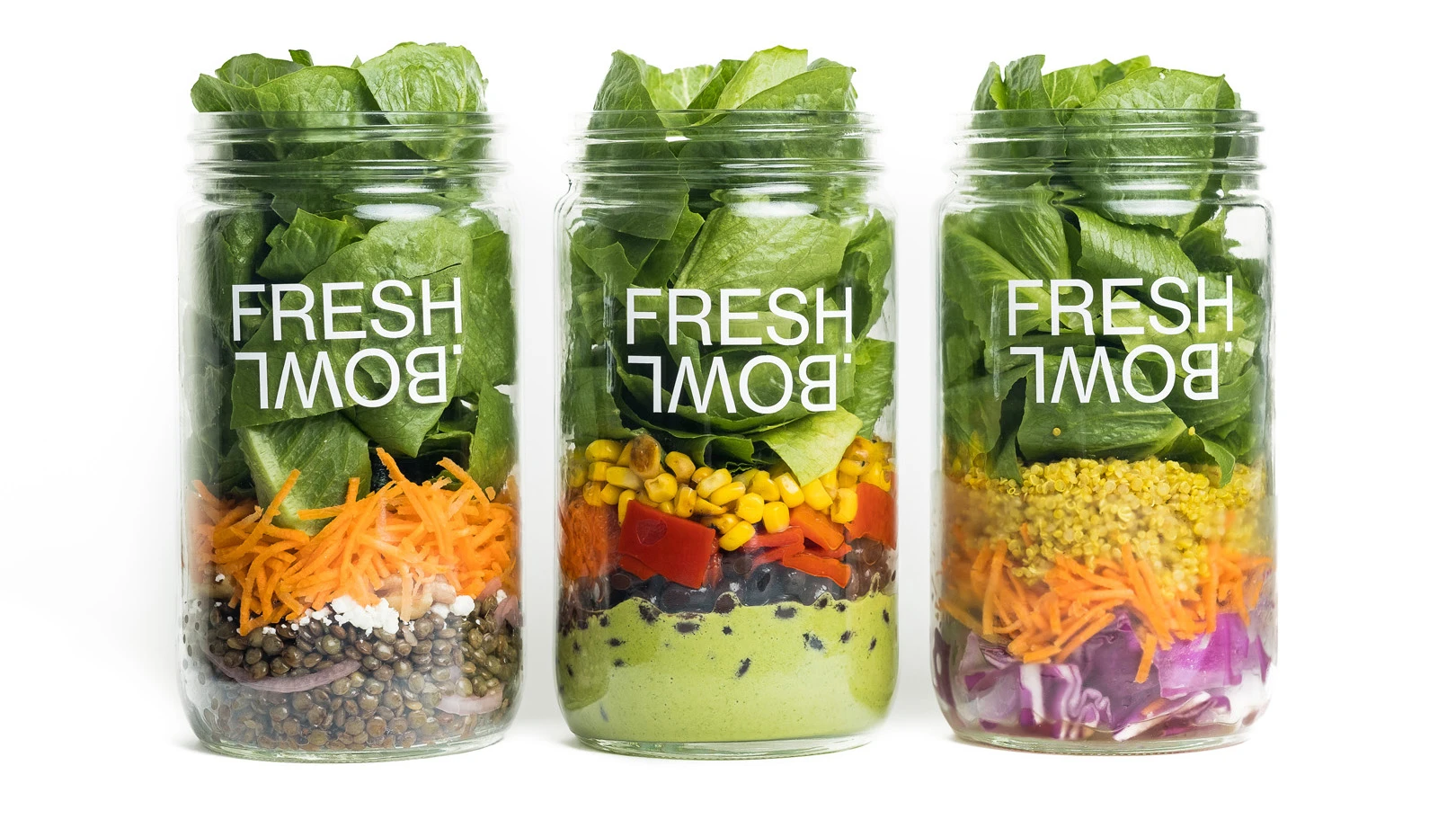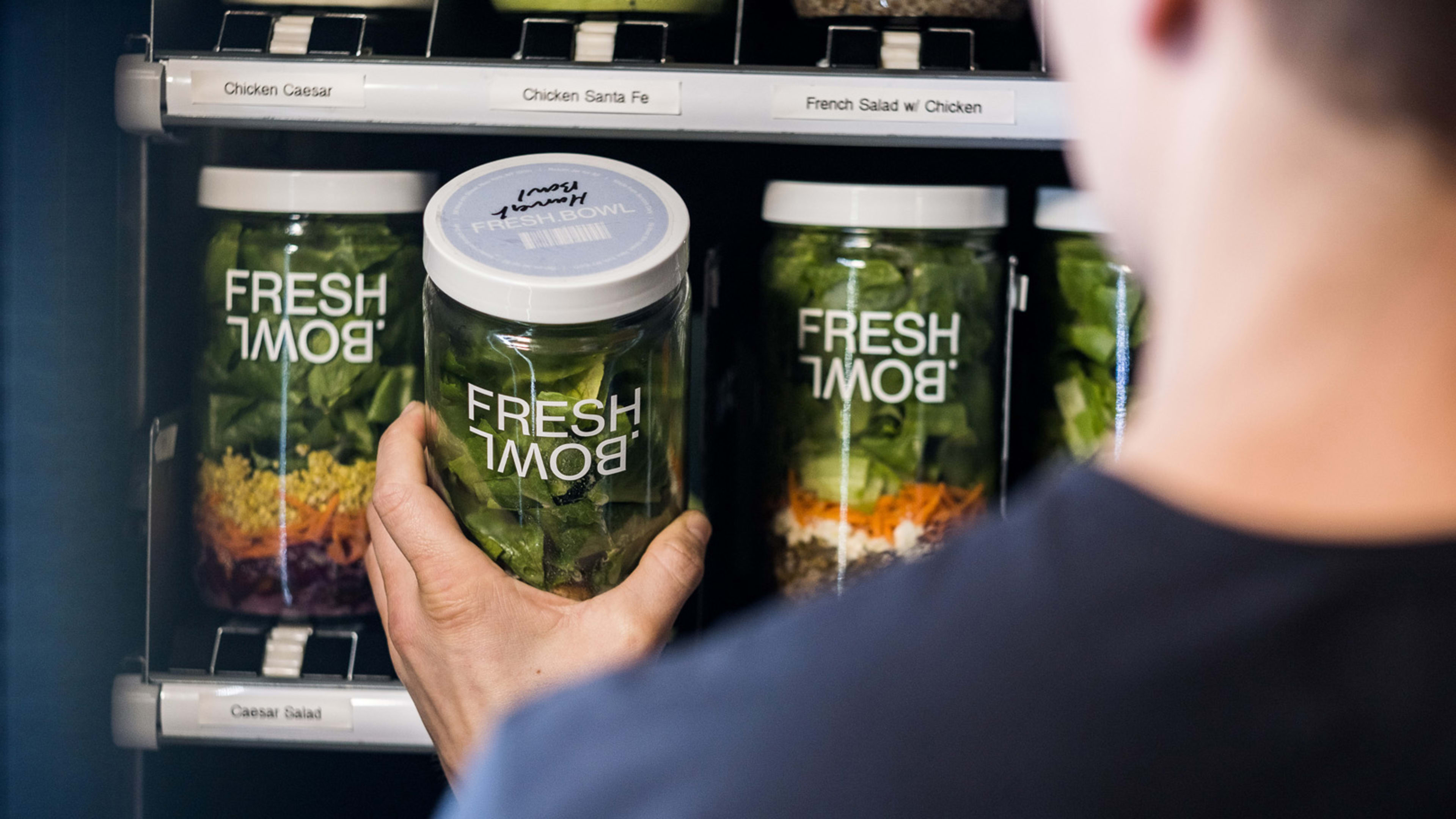When commuters get off the subway at Fulton Street Station in downtown Manhattan and want to grab some food, there’s a new option near the standard offerings from Dunkin’ and Wetzel’s Pretzels: a vending machine that sells fresh salads in reusable glass jars.
Three of the vending machines, made by a startup called Fresh Bowl, are launching in the city today. The company wants to make it easier to access healthy food—and to offer an alternative to the plastic packaging that typically comes with grab-and-go salads. Each glass jar can be returned to the vending machine for a discount on the next meal.

Vichot realized that it could be a better way to reach more people than the expensive process of building new stores and renting more storefront space in Manhattan. “Having a vending machine made a lot of sense, because all of a sudden we could bring our mission of being more sustainable and bringing more healthy food to a lot of people by putting a machine in 10, 20, or 100 locations,” she says.
For the last six months, the startup piloted the vending machine at a WeWork coworking office, gathering feedback from entrepreneurs who ate the food at lunch. The recipes were tweaked from the menu at the café, which Vichot will close at the end of June to focus on expanding the network of vending machines. Salads include dressing at the bottom, followed by ingredients like lentils or beans that soak up the dressing. Greens are at the top so they can stay crisp; when someone’s ready to eat, they shake the jar to dress the salad. The current menu also includes a pasta salad and a plant-based version spaghetti bolognese (made with squash instead of pasta, and lentils instead of beef).

Some restaurants are beginning to experiment with reusable packaging, including Just Salad, which sells a reusable bowl that it says eliminates 75,000 pounds of plastic waste each year. But for most cafes, “sustainable” packaging might mean compostable bowls and forks that can’t necessarily be composted if someone isn’t next to the right trash bins. Fresh Bowl wanted to offer another option. It plans to expand to at least 10 locations by the end of the summer. A similar concept in Chicago now has dozens of salad vending machines. For Vichot, it’s a simple way to give people the opportunity to act on the larger problem of waste. “A lot of people are realizing that their individual actions can snowball to have a larger effect,” she says.
Recognize your brand’s excellence by applying to this year’s Brands That Matter Awards before the early-rate deadline, May 3.
